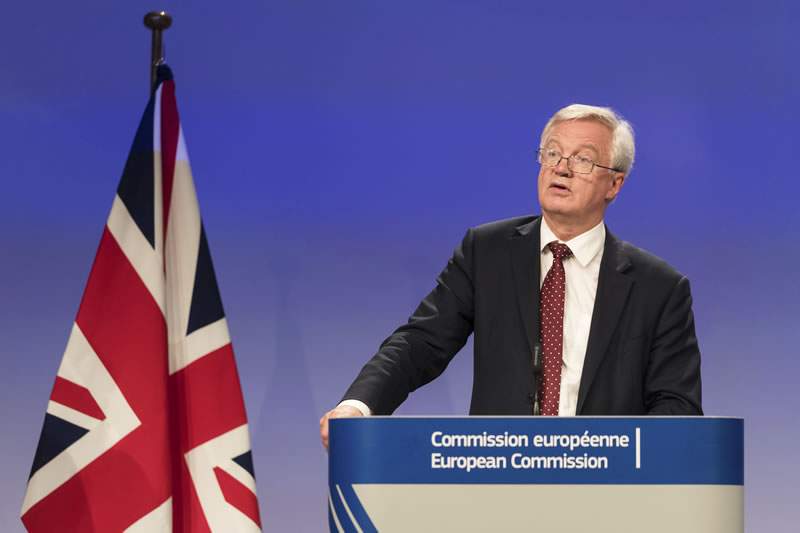
David Davis has said the UK wants to secure a free-trade deal with no tariffs when it leaves the EU, in what has been described as a "Canada-plus plus plus" scenario.
The Exiting the European Union secretary said the deal would involve “Canada, plus the best of Japan, the best of South Korea and that the bit that is missing, which is the services”.
Mr Davis used an interview on the Andrew Marr programme on BBC 1 on Sunday (10 December) to set out his vision for Brexit. A week from now, the government will hold discussions of the 'end state' of the Brexit talks.
It follows news of the Prime Minister Theresa May cementing a stage one Brexit deal on Friday (8 December), which is set to be approved in Brussels this week, allowing talks to switch to a future trade relationship.
Prime Minister Theresa May and European Commission President Jean-Claude Juncker declared that "sufficient progress" had been made on the "divorce issues" to begin the negotiations on their future trading relationship.
The government has confirmed that there will be no "hard border" with Ireland; and EU citizens in the UK, and UK citizens in the EU, will see their rights protected.
But the Labour Party says the UK should "stay aligned" to the EU after Brexit. It said the Norway model, which pays access to the Single Market, would be the best option for the UK.
However, Mr Davis said that the agreement reached by the Prime Minister over the first phase of the negotiations meant that “the odds of a WTO, no-deal outcome have dropped dramatically”.
Mr Davis' vision for a 'Canada-plus' deal will hope to remove the vast majority of customs duties on EU exports. Canada's deal, which was signed last year, allows exports to the EU but no fee for access to the single market.
'Free and unfettered'
Despite progress in talks, farming unions have stressed to the government of the importance of securing continued "free and unfettered" access to EU markets upon the UK’s departure from the EU in March 2019.
The NFU President has called on all parties to maintain the current momentum of progress. Meurig Raymond said: “I am greatly concerned that despite the important steps, farming businesses urgently need certainty about the terms of any transitional agreement which needs to be in place as early as April 2019.”
The progress in talks comes as the farming industry worried of the catastrophe a ‘no deal’ scenario and moving to WTO ‘most-favoured nation’ status would be, severely impacting the industry's ability to trade.
Indeed, a report concluded that a ‘no-deal’ outcome would lead to a collapse in trade, with a 90% drop in beef exports and 53% drop in lamb exports from the UK to the EU.
Average farm profitability could also drop from £38,000 to £15,000 a year in the worst case scenario as a result of policy and performance challenges that come from Brexit.
'Considerable disruption'
NFU's Director of EU Exit and International Trade Nick von Westenholz said there will be 'considerable disruption' if a good trade deal is not secured with the EU.
However, he said that farmers know that there will be opportunities arising from leaving the EU, including increasing the amount of home-grown food consumed by the British public.
“Given the extent of our trade in food with the EU, failure to secure a comprehensive trade deal would cause considerable disruption to farming in the UK,” Mr Westenholz said.
“Although there is some scope for import substitution, farming operates on long timescales. For example, the first crop to be produced post-Brexit will be in the ground in less than a year.
“Furthermore, due to the amount of food we import that isn’t grown here, as well as issues such as managing carcass balance, simply upping production to quickly offset any reduction in food imports isn’t feasible.”
Mr Westenholz said Brexit will offer new opportunities for British farmers, but reiterates the UK must maintain clear free trade with the EU, where most of the UK's food exports head.
